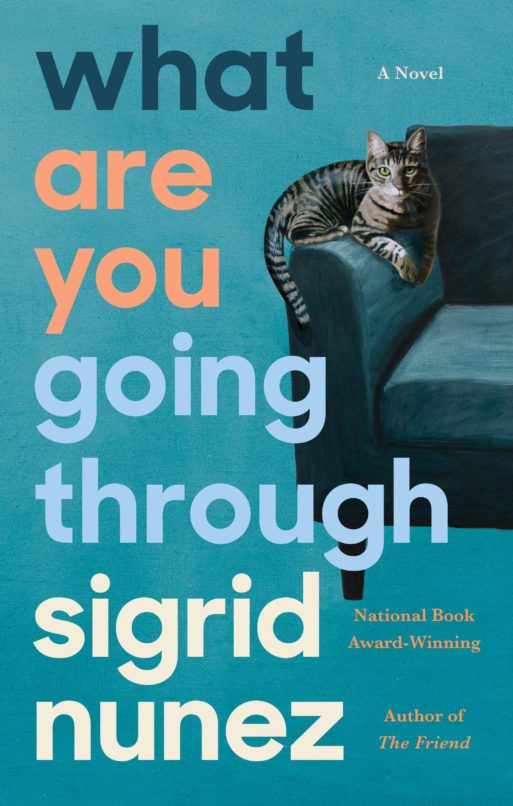
The title of award-winning author Sigrid Nunez‘s new book, “What Are You Going Through,” is a reference to Simone Weil‘s claim that this question lies at the heart of all human compassion. According to Weil, “The love of our neighbor in all its fullness simply means being able to say to him, ‘What are you going through?'”
It’s an apt title for Nunez’s story, which follows an aging writer who accompanies her friend through the final weeks of life with terminal cancer. In her plain, wandering prose, what could easily be driven by end-of-life clichés is instead a patient, unaffected look at coming to terms with mortality.
When the book’s unnamed narrator visits an old college friend dying of cancer, she learns that the friend plans to take life-ending medication before her suffering becomes unbearable. In the meantime, the friend intends to stop her treatments and live out the rest of her life in quiet peace — but she’d rather not do it alone. The narrator finds herself agreeing to move in with the friend to keep her company until she decides to take the medication.
This premise has all the makings of either hijinks or high drama, but Nunez is more interested in the mundane details of daily life — which carry on, she notes, even in the face of the biggest thing that will ever happen to us — than stirring revelations or leaping story arcs. In fact, as much as it is about the narrator’s dying friend, this book is about the string of ordinary people whose lives intersect with the narrator’s, however briefly, while she moves through everyday life.
At the heart of “What Are You Going Through” is the sort of deep kindness that comes with simply sitting with someone in their darkest time. Nunez’s characters aren’t struggling to beat the odds or to cram in as much life as they can before the end. In fact, the friend admits to choosing the narrator as an end-of-life companion because she knew she wouldn’t admonish her for simply accepting her illness.
Sigrid Nunez
Credit: saltonstall.orgThis is how it is with people, she tells me now. No matter what, they want you to keep fighting. This is how we’ve been taught to see cancer: a fight between patient and disease. Which is to say between good and evil. There’s a right way and a wrong way to act. A strong way and a weak way. The warrior’s way and the quitter’s way. If you survive you’re a hero. If you lose, well, maybe you didn’t fight hard enough.
This isn’t the story of what a person does when they know they will die. There’s very little doing in this book at all. Instead, Nunez hones in on the kind of quiet beauty that can overtake us when we allow ourselves to be still for a moment. Her characters don’t seem concerned with snapping up all life has to offer, or even indulging in their favorite things while they still have time; there is no pretense that death can be outwitted or compensated for. The narrator and her friend discuss death and aging with an intimate, unpretentious honesty, never reaching to pull off wisdom or profundity.
Another time, my friend said to me: You’d think it would be easier to leave life if you could convince yourself that everything was horrible and the future was totally bleak. But I can’t bear to think that I’ll be gone and the world won’t go on, infinitely rich, infinitely beautiful. Take that away and there’s no consolation.
“What Are You Going Through” reads like a conversation between friends when time is of no concern, stretching and spilling into meandering paths that sometimes lead somewhere and sometimes don’t. Nunez’s book is a quietly riveting read for anyone fascinated by the ordinary mysteries of everyday life.

 “What Are You Going Through” by Sigrid Nunez
“What Are You Going Through” by Sigrid Nunez




 Are “Rage Rooms” a Healthy Outlet for Grief and Burnout?
Are “Rage Rooms” a Healthy Outlet for Grief and Burnout?
 How US Zip Codes Predict Health Outcomes
How US Zip Codes Predict Health Outcomes














